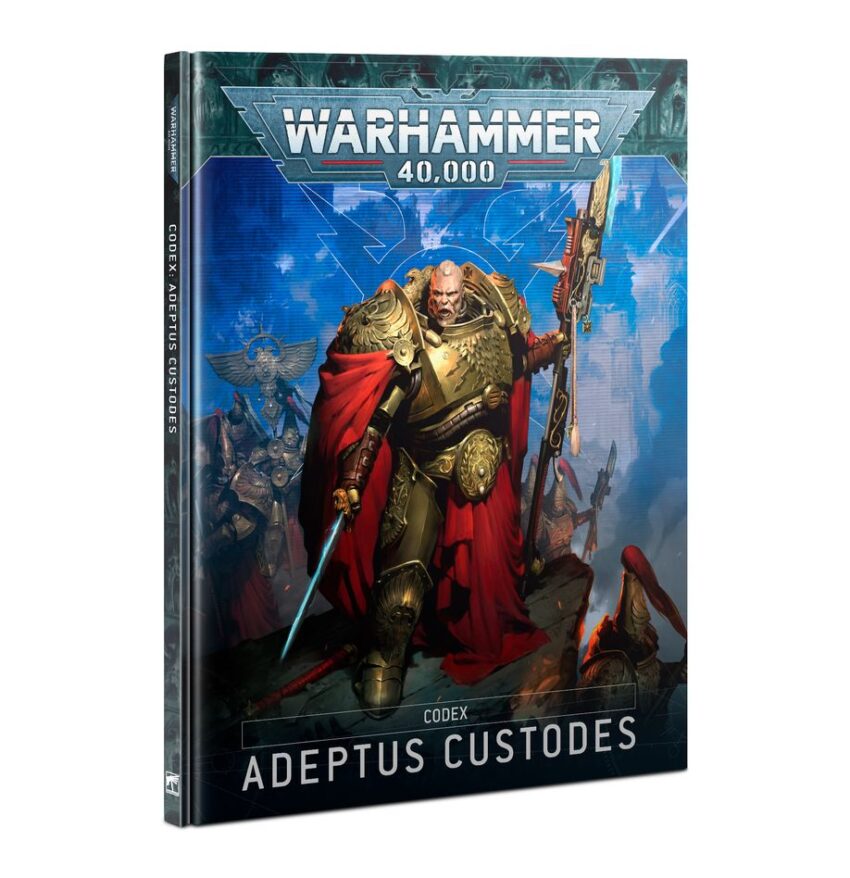The Magisterium Lex Ultima is a striking mechanic in the Adeptus Custodes Crusade rules, a perfect reflection of their lofty status as the Emperor’s elite guardians. It immerses players in the high-stakes world of the Custodes, where every mission undertaken is crucial, and failure carries significant consequences. In this post, we’ll explore how the Magisterium Lex Ultima system works, break down its key components, and analyze how it meshes with the Custodes’ narrative of perfection and duty.
Introduction: The Custodes’ Sacred Mandate
The Adeptus Custodes are not bound by the laws or hierarchy that govern the rest of the Imperium. Answering only to the Emperor, they undertake vital tasks with the full weight of the Imperium behind them. The Magisterium Lex Ultima rule encapsulates this role beautifully by presenting Custodes players with Imperative Endeavours—mission-based objectives that reflect their high responsibility and autonomy. Success brings rewards worthy of the Emperor’s chosen, but failure leads to deep Dishonour, a concept that not only affects gameplay but enhances the narrative feel of leading the Custodes.
Starting an Endeavour: Claiming the Magisterium Lex Ultima
To begin an Endeavour, your Crusade force must include either Trajann Valoris or a Shield-Captain—figures of authority within the Custodes who can invoke the Magisterium Lex Ultima. This starts a multi-step mission, with players randomly determining three Imperatives from two tables, each representing a vital task that must be completed sequentially across battles.
Rolling on the Imperative tables ensures each Endeavour is unpredictable, adding variety and challenge to your Crusade. You must complete one Imperative before progressing to the next, creating a campaign within your Crusade force’s journey. If you successfully complete all three Imperatives, you earn powerful Endeavour Rewards. However, if you abandon the Endeavour or fail to complete it within nine battles, you suffer Dishonour.
The Cost of Failure: Dishonour and Its Consequences
One of the most compelling aspects of the Magisterium Lex Ultima system is how it handles failure. If your Crusade force is unable to complete all three Imperatives within nine battles, or if you choose to abandon the Endeavour early, you must suffer a Dishonour. Each type of Dishonour reflects a specific failing, and the penalties are harsh, underlining the Custodes’ unique responsibility.
Dishonour Table (D6 Roll):
- Command in Question
- You must select one of your Shield-Captains, who gains both the Disgraced and Mark of Shame Battle Scars from the Crusade rules. This not only reflects a serious blow to your force’s morale but is also a narrative setback, as your once-glorious captain is now marred by public shame. If your force has no Shield-Captain units, you re-roll this result.
- Damage Limitation
- For the next series of battles, you halve the experience points (XP) earned by all your units, rounding down. The number of battles affected corresponds to the number of Imperatives left uncompleted when the Endeavour was abandoned (for example, if you failed after completing only one Imperative, you suffer this penalty for two battles).
- Petition the Tower of Hegemon
- The most punishing of the Dishonours, this result resets your Requisition Points (RP) to zero, and you are unable to gain any RP for a number of battles equal to the number of incomplete Imperatives.
These Dishonour penalties capture the gravity of Custodes failures. As a force that operates with minimal support and answers directly to the Emperor, failure has sweeping consequences. Dishonour doesn’t just affect the current battle—it lingers, impacting future engagements and reducing your force’s effectiveness. This long-term impact highlights how deeply the Custodes feel their responsibilities and the weight of the Emperor’s expectations.
Endeavour Imperatives: High-Stakes Objectives for the Emperor’s Chosen
Imperatives are the core of the Magisterium Lex Ultima, reflecting the critical tasks the Custodes undertake in service of the Imperium. Players randomly generate three Imperatives from two tables, each representing a high-priority mission that must be completed in sequence.
Imperatives (D6 1-3)
- Emperor’s Domain
- Complete two battles where you end with more friendly units in your deployment zone than enemy units.
- This represents the Custodes’ role as defenders of vital Imperial territory, emphasizing their ability to protect key locations from incursion.
- Wrath of the Emperor
- Destroy four or more enemy units by the start of the third battle round in two battles.
- This Imperative highlights the Custodes’ overwhelming offensive power, showcasing their ability to strike decisively and end threats swiftly.
- Make an Example
- Win a battle by more than 10 Victory Points.
- Here, the Custodes must not only win but do so convincingly. It reinforces the narrative of the Custodes making every battle a symbol of Imperial dominance.
- Vital Targets
- Destroy the three highest-point units in your opponent’s army across two battles.
- The Custodes focus on eliminating critical threats, showing their expertise in prioritizing high-value targets that could jeopardize the Emperor’s realm.
- Shadowed Directive
- Earn XP from Adeptus Custodes-specific Agendas in two battles.
- This emphasizes the Custodes’ covert operations, often executing hidden or secretive missions in the Emperor’s name.
- Absolute Mastery
- Earn XP from non-Custodes Agendas in two battles.
- Here, the Custodes must demonstrate their superiority across various theaters of war, completing objectives that align with larger Imperial goals.
Imperatives (D6 4-6)
- Shadow of the Throne
- Control three objectives and double the number your opponent controls.
- This mission represents the Custodes’ ironclad control over key territory, ensuring no one can contest the Emperor’s dominance.
- Martial Supremacy
- Destroy twice as many enemy units as you lose in a battle.
- Reflecting the Custodes’ near-invulnerability, this Imperative challenges them to decisively outmatch their foes.
- Alpha Threat Confirmed
- Destroy the enemy Warlord in battle.
- This Imperative highlights the Custodes’ ability to eliminate key threats, showcasing their surgical precision in warfare.
- Annihilation
- Destroy every enemy unit or reduce them to below half-strength.
- The Custodes must completely shatter their enemies, fitting their role as the Emperor’s ultimate instrument of extermination.
- Emperor’s Will Be Done
- End two battles with more units in the enemy deployment zone than your own.
- This objective highlights the Custodes’ relentless push into enemy lines, overwhelming them through sheer force.
- Inspirational Example
- Destroy two units in melee with a Custodes CHARACTER.
- The Custodes lead from the front, embodying the Emperor’s will through personal acts of heroism in battle.
Endeavour Rewards: The Emperor’s Favors for His Chosen
Successfully completing all three Imperatives grants powerful Endeavour Rewards, with each Imperative providing unique benefits:
- Instant Rewards: These apply immediately, offering tangible benefits such as gaining extra XP, RP, or marking units for greatness. For example, completing Emperor’s Domain grants 3 Requisition Points, while Wrath of the Emperor allows you to mark two additional units for greatness, accelerating their growth.
- Persistent Rewards: These provide ongoing, tactical benefits. For example, completing Shadow of the Throne allows you to use an Adeptus Custodes Stratagem once per game for 0CP, significantly increasing your army’s strategic flexibility in key moments.
Endeavour Rewards are designed to feel as if the Custodes’ excellence and dedication are being acknowledged by the Emperor himself. Persistent rewards, in particular, showcase the Custodes’ ability to carry forward the fruits of their victories into future engagements.
Conclusion:
The Magisterium Lex Ultima rules offer a rich narrative experience, combining high-stakes objectives with a reward and punishment system that deeply aligns with the Custodes’ lore. The addition of Dishonour as a tangible consequence of failure reinforces the Custodes’ relentless pursuit of perfection, while the structured Imperatives and Endeavour Rewards offer a clear yet challenging path to success. This system enhances both the gameplay and narrative experience of leading the Custodes, making it an integral feature of Warhammer 40,000’s Crusade mode.
And remember, Frontline Gaming sells gaming products at a discount, every day in their webcart!






